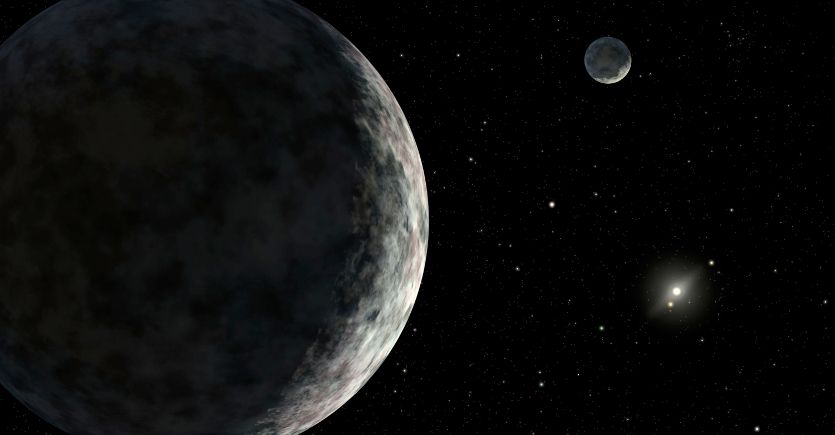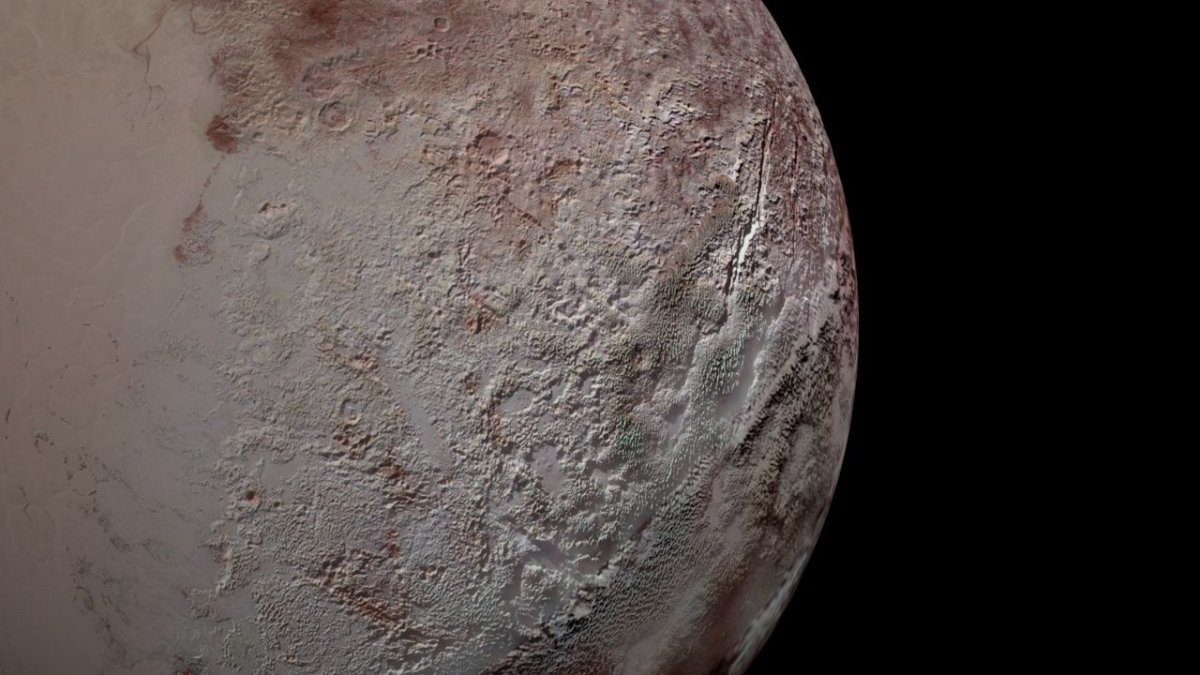
Pluto, whether or not you want to call it a planet, is really, really far away from the sun—40 times farther than Earth is—which means it's really, really cold. Its surface may be as cold as minus 400 degrees Fahrenheit. But according to a recent paper published in the journal Icarus, deep inside Pluto, and other distant worlds like it, there may be a surprisingly balmy refuge for possible life.
"These objects need to be considered as potential reservoirs of water and life," lead author Prabal Saxena, a planetary scientist at NASA's Goddard Space Flight Center, said in a press release. "If our study is correct, we now may have more places in our solar system that possess some of the critical elements for extraterrestrial life."
Saxena and his colleagues studied trans-Neptunian objects, a term scientists use to refer to literally anything in our solar system that orbits out past Neptune—probably hundreds of thousands of objects in all. The largest and most well-studied of the trans-Neptunian objects is Pluto, followed by Eris, another dwarf planet.
Trans-Neptunian objects already have a couple of ways of staying warm despite the lack of sunlight. Certain forms of elements like uranium and potassium can decay radioactively, releasing a little heat as they do. Saxena and his colleagues wanted to look at another potential form of heating, caused by tidal forces.
Yes, that tidal, as in ocean tides here on Earth, produced by the gravitational interaction of the planet and its moon. Earth and moon have a pretty stable relationship at this point: The moon's orbit is circular, and paced with its rotation so that the same side of the moon always faces Earth. It's the sort of interaction that takes a lot of time to build as two celestial bodies iron out the irregularities in their orbits.

A side effect of this organized pattern is that the moon's gravitational tug pulls at Earth—but since the planet's surface is covered in liquid water, it simply sloshes over to appease that tug, creating tides.
Other worlds with moons are still finding their way to that stable relationship, but as it does develop, tides will start to develop there as well. That typically manifests as both bodies stretching and compressing each other as the moon orbits, creating friction that turns into heat.
So Saxena and his colleagues calculated how much heat would be produced between pairs of trans-Neptunian objects, like Pluto and its largest moon, Charon; Eris and its moon Dysnomia; and a handful of other distant pairs. Those calculations showed that tidal heating is strong enough that it could allow water to remain liquid under the surface of those objects.
That would parallel other hidden oceans in our solar system, like those on Jupiter's moon Europa or Saturn's moon Enceladus. Those subsurface oceans—if they can be paired with other factors like hydrothermal vents—are currently considered some of the most likely candidates for hosting extraterrestrial life.
Uncommon Knowledge
Newsweek is committed to challenging conventional wisdom and finding connections in the search for common ground.
Newsweek is committed to challenging conventional wisdom and finding connections in the search for common ground.
About the writer
Meghan Bartels is a science journalist based in New York City who covers the science happening on the surface of ... Read more
To read how Newsweek uses AI as a newsroom tool, Click here.








